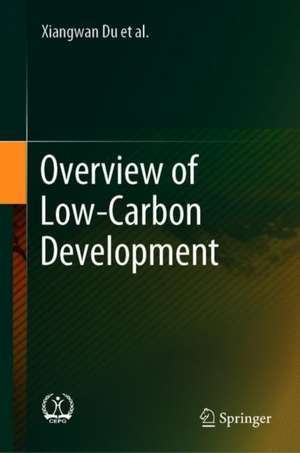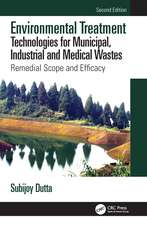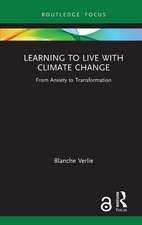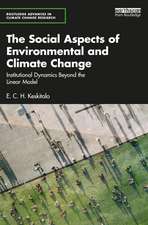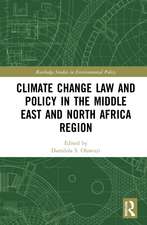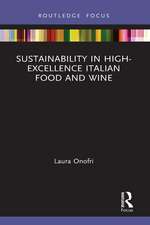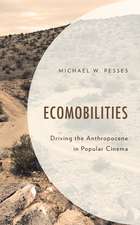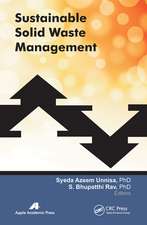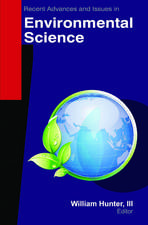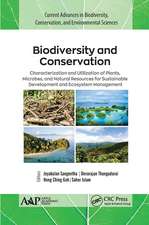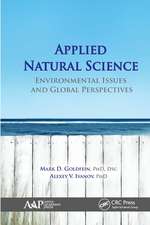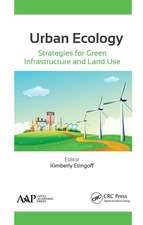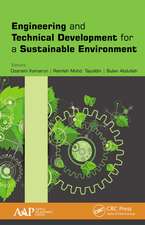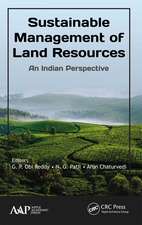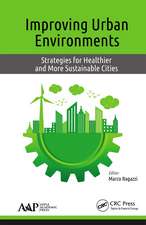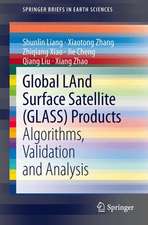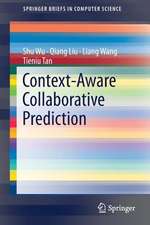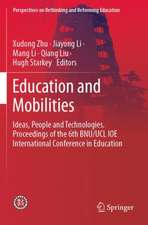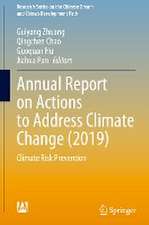Overview of Low-Carbon Development
Autor Xiangwan Du, Dadi Zhou, Qingchen Chao, Zongguo Wen, Taoli Huhe, Qiang Liuen Limba Engleză Hardback – oct 2019
| Toate formatele și edițiile | Preț | Express |
|---|---|---|
| Paperback (1) | 644.18 lei 6-8 săpt. | |
| Springer Nature Singapore – oct 2020 | 644.18 lei 6-8 săpt. | |
| Hardback (1) | 650.37 lei 6-8 săpt. | |
| Springer Nature Singapore – oct 2019 | 650.37 lei 6-8 săpt. |
Preț: 650.37 lei
Preț vechi: 765.14 lei
-15% Nou
Puncte Express: 976
Preț estimativ în valută:
124.46€ • 129.46$ • 102.75£
124.46€ • 129.46$ • 102.75£
Carte tipărită la comandă
Livrare economică 12-26 aprilie
Preluare comenzi: 021 569.72.76
Specificații
ISBN-13: 9789811392498
ISBN-10: 9811392498
Pagini: 276
Ilustrații: XXX, 339 p. 148 illus., 71 illus. in color.
Dimensiuni: 155 x 235 mm
Greutate: 0.69 kg
Ediția:1st ed. 2020
Editura: Springer Nature Singapore
Colecția Springer
Locul publicării:Singapore, Singapore
ISBN-10: 9811392498
Pagini: 276
Ilustrații: XXX, 339 p. 148 illus., 71 illus. in color.
Dimensiuni: 155 x 235 mm
Greutate: 0.69 kg
Ediția:1st ed. 2020
Editura: Springer Nature Singapore
Colecția Springer
Locul publicării:Singapore, Singapore
Cuprins
The Progress of Human Civilization.- The Science of Modern Climate Change and Low-carbon.- The Low-carbon Development.- High-carbon is Not the Only Route to Modernization.- The importance of Change Development Mode.- China’s Low-carbon Development Strategic Goals.- Low-carbon Energy is the Basis of Low-carbon Development.- Low-carbon Production.- Low-carbon Consumption.- Low-carbon Technology.- Low-carbon Policies.
Notă biografică
Prof. Xiangwan Du graduated from Moscow Engineering Physics Institute of the Soviet Union in 1964. He was vice president of the Chinese Academy of Engineering (CAE), research fellow and senior scientific advisor of China Academy of Engineering Physics (CAEP). He was in charge of systematic research on diagnostic theory of nuclear tests and neutron physics of nuclear weapon. He served as a chief scientist in China’s new power laser research and drove China’s several new types of power laser technologies such as chemical oxygen-iodine laser to reach the world’s most advanced levels. He has been director of the committee of experts in the field of advanced defense technology of the 863 Program since 2001.
Prof. Du was elected member of CAE in 1997 and foreign member of Russia Academy of Engineering Science in 2006. He has been vice president of CAE since 2002 and has played a leading role in the consulting work on China’s energy development strategy such as Research on China 2020 Renewable Energy Development Strategy, Research on China Energy Medium and Long Term (2030, 2050) Development Strategy and Re-consideration of Nuclear Energy Development, etc. He is currently the deputy head, National Energy Expert Advisory Committee.
Prof. Du has participated in addressing climate change. He has been in charge of the study of scientific and technologic issues concerning addressing climate change. He is the honorary director of the National Expert Committee of Climate Change. He was advisor of Chinese Delegation to COP UNFCCC at Copenhagen, Durban, Doha, Cancun, Warsaw and Paris where he elaborated on efforts China needs to make in carbon intensity reduction and presented China’s determination in active commitment and achievement of goals in terms of energy.
Prof. Du was honored with one top prize, one first prize and two second prizes of the National Award for Science and Technology Progress and dozens of ministry- and commission-level first and secondprizes. He won the Ho Leung Ho Lee science & Technology Progress Award in 2000.
Prof. Du has participated in addressing climate change. He has been in charge of the study of scientific and technologic issues concerning addressing climate change. He is the honorary director of the National Expert Committee of Climate Change. He was advisor of Chinese Delegation to COP UNFCCC at Copenhagen, Durban, Doha, Cancun, Warsaw and Paris where he elaborated on efforts China needs to make in carbon intensity reduction and presented China’s determination in active commitment and achievement of goals in terms of energy.
Prof. Du was honored with one top prize, one first prize and two second prizes of the National Award for Science and Technology Progress and dozens of ministry- and commission-level first and secondprizes. He won the Ho Leung Ho Lee science & Technology Progress Award in 2000.
Textul de pe ultima copertă
This book introduces readers to the status quo and recent advances in China’s low-carbon development. From the evolution of human civilization, to the proposal of low-carbon concepts, up to the choice of China’s low-carbon path, the book provides a comprehensive review of low-carbon development, while also elaborating on the core concept, goals and methods. In addition, it addresses a series of questions and issues closely tied to today’s social development, such as: “Why is it so vital to pursue low-carbon development?” and “How can China implement low-carbon development?” Accordingly, readers will gain a better grasp of low-carbon development, including low-carbon production and low-carbon lifestyles.
Caracteristici
Offers a comprehensive introduction to low-carbon development in China Explains why it is so vital to implement low-carbon concepts and technologies Presents potential roadmaps for low-carbon development
